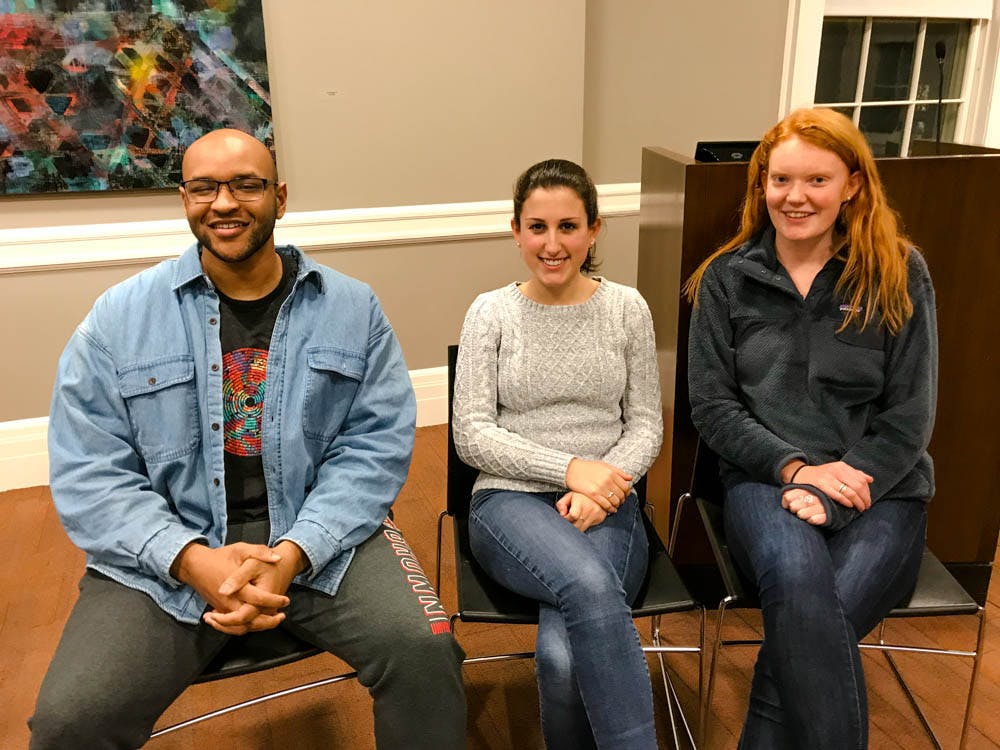At its first general body meeting of the semester, the Undergraduate Council of Students discussed proposed additions to the student course evaluation survey and debated changes to the Campus Consent Bill Wednesday evening.
Dean of the College Maud Mandel and Director of the Sheridan Center for Teaching and Learning Mary Wright presented a revised version of the feedback form to the general body. Students can currently submit the form either on Banner or in class before they receive grades at the end of each semester.
“We’re going to actually pilot (the new questions) in some courses” this semester, Mandel said. “Based on that and on student feedback from that, we will hopefully launch a new form next year.” She added that a committee of faculty, staff, undergraduates and graduate students helped to develop the form in the fall 2017 semester.
A draft of the form presented at the meeting included new open-ended questions that address academic integrity and in-class atmosphere regarding diverse student perspectives.
For example, a proposed question on the form asks how a student’s professor “communicate(d) and explain(ed) the expectations for academic honesty” in class, and another question inquires whether students “were treated with respect and their questions and perspectives welcomed,” according to a copy of the proposed form obtained by The Herald.
General body members were offered the opportunity to suggest additional changes and comment on the form’s questions at the meeting. Among other comments, UCS members suggested the addition of questions regarding how students feel about their amount of busywork and the necessity of attending class.
Mandel also discussed the possibility of allowing students access to these response summaries that are currently available only to professors and certain administrators.
Responses to the forms “are invisible, and one of the things the committee is discussing is whether we should review that policy,” she said. “I would make them all visible, but as you can imagine, people have strong opinions about that.”
The council also discussed amending the Campus Consent Bill, which UCS passed in a unanimous vote last spring. The bill mandates that a liaison from every Category III student group receive training from the Sexual Assault Peer Education Program by the end of spring 2018, or risk losing the group’s funding and classification. The proposed changes aim to decrease the burden of training currently placed on SAPE and increase the obligations of Category III student groups, said UCS President Chelse-Amoy Steele ’18.
“Originally, the plan for this was that all Category III student groups needed to have a singular liaison that went to a three-hour training by SAPE, … and then they would go back to their student group and host some sort of connected training,” Steele said. “Unfortunately, this put a lot of the burden for keeping up with this on SAPE.”
The suggested additions and changes to the bill would also require student groups to amend their constitutions during their next re-registration or re-categorization to “describe the structure of the organization and any associated power dynamics.” In addition, the suggested changes would require groups to establish guidelines for community accountability, according to a version of the suggested changes presented at the meeting.
“I think the previous version (of the bill) put a lot of responsibility on SAPE, whereas now it’s … on the Student Activities Committee,” said William Zhou ’20, chair of the committee on student activities. To make the bill sustainable, “we need to find some sort of in between, where it’s not just all on one group.”
At the meeting, Steele also discussed making the UCS election process more fair by giving UCS members the opportunity to establish connections with student groups throughout the semester.
In past elections, there has been “a lot of running around,” Steele said. “A lot of (election results) depend on who you know and how well you know them, and also how much time you can dedicate.”
UCS elections for the 2018-19 executive board will take place later this spring.





